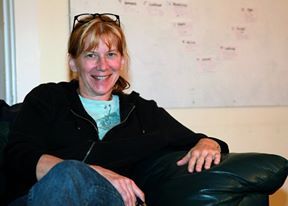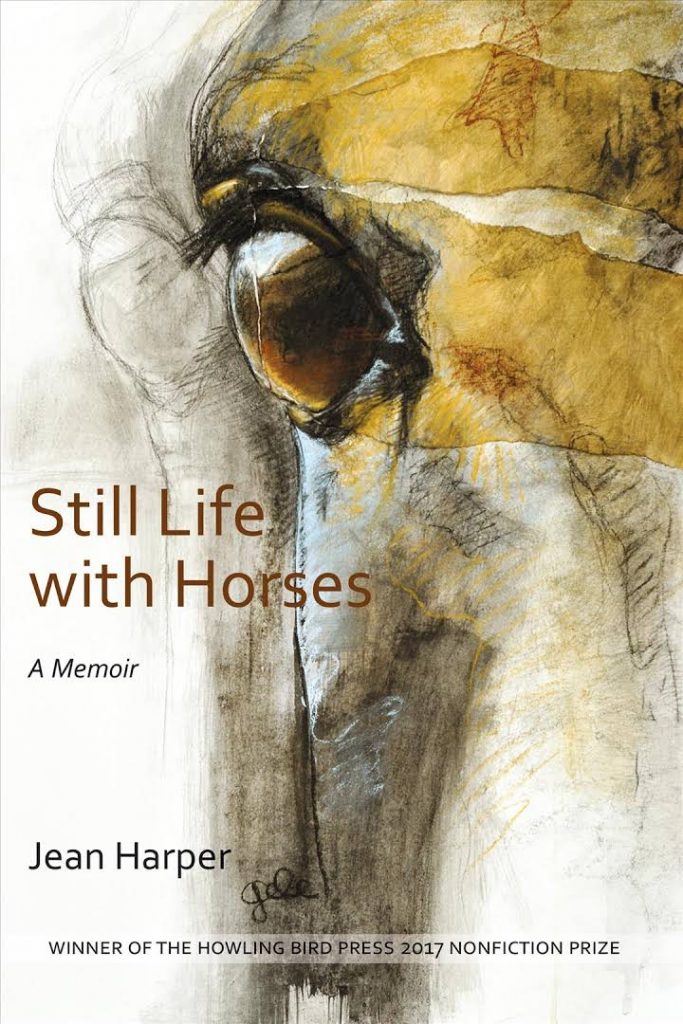
What is it about writing that energizes you?
What I appreciate most about writing is that I always discover something new in the process. Whether it’s a brand new idea that starts a new project, or a revision of an ongoing project, or an idea that wakes me up in the middle of the night for how to resolve a writing problem, I am always learning something new. New about the world, myself, ideas, the human condition. Writing is a way in to all of that.
What are common traps for aspiring writers?
I think this really varies writer to writer, but I see some commonalities among my students. For instance, believing in “writer’s block” seems to trip up many aspiring writers. I personally do not believe in “writer’s block.” I might have at one time long ago, but a stint in writing on deadline for a local newspaper cured me of writers block forever. There’s really no such thing, in my opinion. There may be problems writers face—like, how to describe that person, that moment in time; or, how to shoo away all the distractions in life to get some quiet uninterrupted hours at your desk; or, how to write about a very difficult experience—but those are problems that are solvable. I think if aspiring writers thought not of “blocks” but rather of “solvable problems” it might help.
Another trap is worrying too soon about publication. I have a friend, a dear friend, who is writing a memoir. Someone in our writing group suggested she get an agent, and find a publisher, now. I shook my head: No, not yet. You haven’t even figured out the arc of the story yet. Write the memoir first. Then worry about the agent, the publisher, publishing. Just write.
Another trap, and this is corrosive, is envy. Someone somewhere is always going to get a prize or a publication or a review that you don’t get. That’s just life. If you constantly compare yourself to the next new writer, you’ll eat yourself up with envy. Don’t do it. Applaud everyone’s success, and get back to your desk.
What is your writing Kryptonite?
I had to look up what Kryptonite does! “Deprives Superman of his powers.” Hmm. I don’t think I have a writing Kryptonite. That doesn’t mean I’m Superman (or Supergirl), not at all. What it means is that writing is how I think about the world. I’m constantly writing inside my head, casting experience into sentences. I may be sitting in a meeting looking attentive about whatever my department chair is talking about, but really I’m writing a scene for my novel, or revising a sentence, or turning a word over in my mind, like a cool pebble inside my mouth. Writing is just who I am. Nothing can deprive me of that power.
What other authors are you friends with, and how do they help you be a better writer?
Oh, so many writers, really. I have two wonderful poet friends I met some years ago at a writing workshop, and we stay in touch by email, getting together in real time and space as often as we can. We send each other drafts of writing, sometimes just fragments, sometimes the whole thing. And we just talk about life too. The frustrations of getting it all done, what we are reading, recipes for all those tomatoes we’ve grown.
I have another writer friend who is very strategic about her career as a writer; she is probably about twenty years younger than I am, and I just watch in a kind of wonder at her energy and determination. I take a lot of inspiration from our friendship, and she kind of views me as her academic mentor. It’s a really interesting relationship.
And there are writers out there who I have met, who are kind of giants in their genre (I won’t drop names); I’ve learned something so very valuable from the “famous writers”: the best writers are often the most generous of human beings, willing to help in so many ways— making connections, championing your work, encouraging you to keep going, to keep writing. If I ever become a “famous writer” I shall use these wonderful human beings as my model. There is no place for arrogance in writing, only generosity.
Do you want each of your books/stories to stand on their own, or are you trying to build a body of work with connections between them?
Very good question. I think my first and second book are linked, but they each also stand on their own. I am very interested in a number of intersecting subjects: women, the Midwest, courage, kindness, and, of course, horses.
The two projects I’m working on now are 1) about women and courage; 2) about horses and a girl and courage. So I suppose there is a connection between all of this.
Did publishing with Howling Bird Press change your writing process?
I think a lot more now about the internal design of a piece. The editors working on Still Life with Horses were so acutely aware of how various parts of the story fit together (or didn’t) and made the book so much better by their attention. I think about this a lot more now as I revise, which is really a gift.
What have you done since you won the Howling Bird Press prize?
I have been working on two writing projects: One, a nonfiction narrative about five generations of women in my family, going back to the wife of a whaleship captain in the mid-1800s. And, two, a novel set in Kentucky in the 1970s about a young girl and her father and their hopes pinned on a racehorse. I’m really enjoying working on the novel. It’s a delightful departure from nonfiction. The joy of inventing is delicious.
What did you do with your first advance?
I don’t remember, honestly! I probably did something horse-related. I currently have a Welsh Pony/Quarter Horse cross who is just amazing. I might have bought him a present, maybe a new saddle pad. Or, more likely, I put the advance in the bank!
As a writer, what would you choose as your mascot?
My father lived the last ten years or so of his life in a large apartment overlooking a turn and pool in the Assabet River in Concord, Massachussetts. The view from his window was so lovely, and Dad was always especially thrilled to see the resident Great Blue Heron wading and feeding in that pool. He took, literally, hundreds of photographs of that sinuous bird. My father loved photography, birds, science, nature, gardening, physics, music. Everything. He was curious about the world and delighted by all of life. Dad died in 2016, and when I see a Great Blue Heron now, I think of my dad.
What kind of research do you do, and how long do you spend researching before beginning a book?
For the horse novel, I spent several years making trips to Kentucky, hanging around race tracks, talking to horse people, watching races, and training sessions, and just absorbing as much as I could. And, of course, reading a lot, and widely.
For the nonfiction narrative about the women in my family, I made a number of research trips to New England, to archives and libraries that had all kinds of holdings, from whaling logs, to letters my great great grandparents had written, to photographs. And, reading everything I could get my hands on.
I also take the advice of Nathaniel Philbrick who has said “You have to buy the books.” So, I have a really incredible library of books. I think every writer should. And not Kindle or e-book versions. Books. Things you hold in your hand, turn the pages of. There’s a tactile experience there that helps with memory and imagination. I say this anecdotally, but I suspect there are studies too.
What did you edit out of your book, Still Life with Horses?
I edited out things that were too self-absorbed, maudlin, maybe motivated more by reprisal than art. For me it was most important to tell a balanced story, not one that cast me as a victim-turned-hero and anyone else into a villain. That’s not really how real life works, most of the time. We’re all a lot more complicated than that. I wanted to honor that complication, reveal it, share it.
Do you read your book reviews? Why or why not?
Sure, I read my book reviews. And I remember that behind every review there is a person, with their own idiosyncratic points of view, or dislikes, or preferences. That person also may or may not care about trends in writing. That person may or may not be drawn to the subject matter. I read the review, and put it away, and that is that.
Do you hide any secrets in your books that only a few people will find?
There’s really only one “secret” and it’s not really a secret. The end of the book, the very last scene, is a reference to a gorgeous poem by James Wright, “The Blessing” that beautifully describes an encounter of the speaker of the poem with two ponies in a field. The poem ends as one of the ponies walks over to the speaker:
For she has walked over to me
And nuzzled my left hand.
She is black and white,
Her mane falls wild on her forehead,
And the light breeze moves me to caress her long ear
That is delicate as the skin over a girl’s wrist.
Suddenly I realize
That if I stepped out of my body I would break
Into blossom.
And Still Life with Horses ends like this:
The horse lowers his great head, and flows softly on my outstretched hands. The faint trace of whiskers on my skin, the warm living breath. A blessing. It feels like that. Exactly like that.
I worried a little that this might be too obvious, but only one person (a horse lover, and a poet) has caught it . . . that I know of. For me, the story had to end that way. I adore horses, all horses, and have a vast respect and deep admiration for horses’ ability to truly see people for who they really are. Horses never lie. They always tell the truth. I aspire to be that clear myself.

